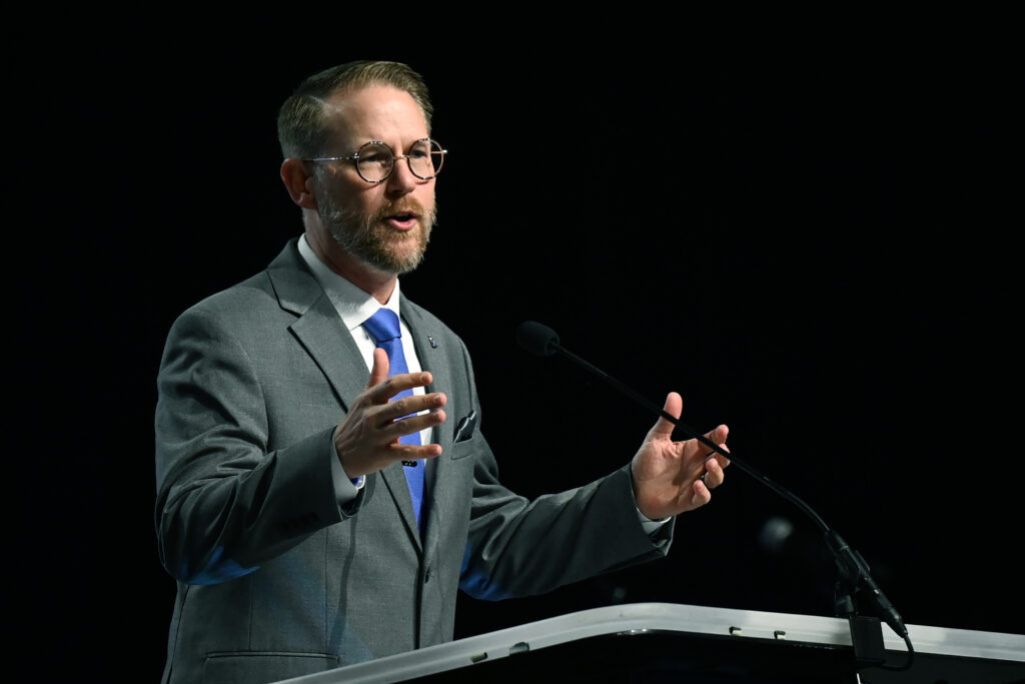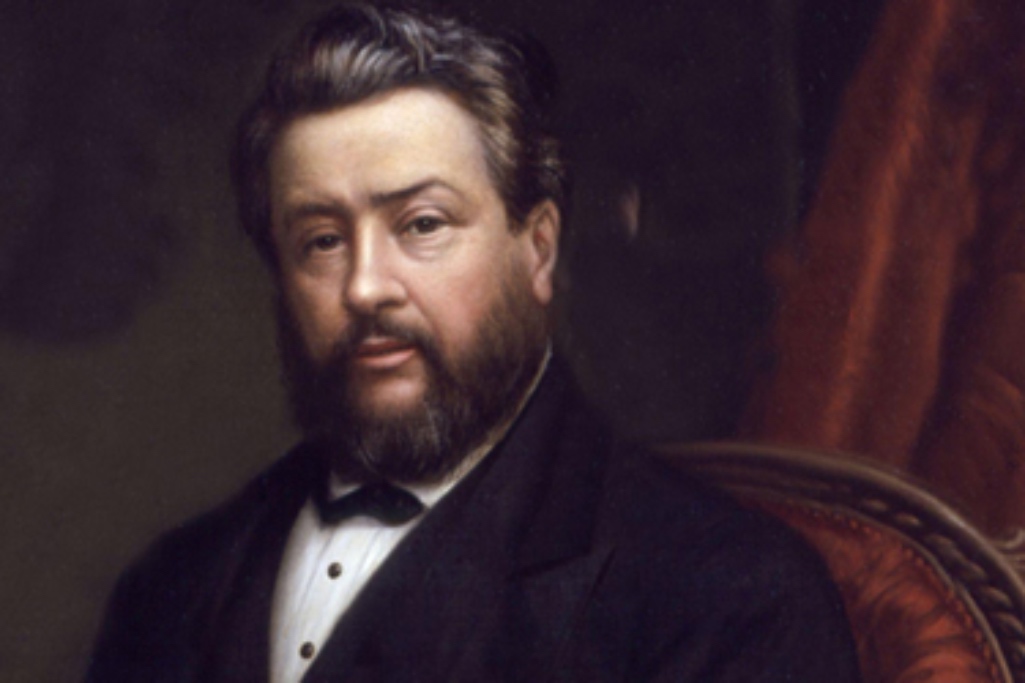
Tony Wolfe, executive director of the South Carolina Baptist Convention, brings a sermon from Ecclesiastes 11 to messengers at the 2025 SBC annual meeting in Dallas
DALLAS (BP) — During the June 11 morning session of the Southern Baptist Convention (SBC) annual meeting in Dallas, Tony Wolfe, executive director of the South Carolina Baptist Convention, drew from Ecclesiastes 11:1-6, which employs metaphors about casting bread on the water and watching for rain, wind and falling trees, to celebrate the long-reaching impact of the Cooperation Program (CP).
This year’s convention sermon speaker, Wolfe pointed to 100 years, 28 days and 19 hours ago, when Southern Baptists birthed the Cooperative Program.
“In that pivotal meeting, our forefathers cast their bread upon the waters, and the gospel has streamed magnificently all these years from the waters to the nations,” he said.
“Today we live and work downstream from those humble beginnings … our Cooperative Program has become such a powerful force in advancing the Great Commission through the years.”
Verse 1, which urges readers to cast their bread upon the water, “calls us to obedience in steady, faithful investment, trusting the principle of sowing and reaping within God’s economy.”
Wolfe said, “Bread does not float and accumulate downstream on accident. It must be sent. Seeds must be sown.”
In the same way, he said, “the Cooperative Program is an exercise in sacrificial, forward faith.”
Verse 2, Wolfe continued, “implores us to obedience in unselfish, generous investment, knowing the fallen condition of the world in which we invest.”
He asserted, “The Cooperative Program is a unified effort in a diversified strategy,” which focuses on international and North American missions, Baptist universities and seminaries, children’s homes, public policy advocacy, Disaster Relief, church revitalization and more.
He quoted M.E. Dodd: “Money given to the church and through the Cooperative Program will go farther, rise higher, spread wider, work deeper and last longer than when given to any other place or cause.”
Verse 3, which points to the unknown schedule and location of rain and wind, “illustrates our lack of control regarding the eventual results of our faithful obedience,” Wolfe said.
“When we send our bread on the surface of the waters, we simply cannot know the results it will produce,” he said. “But when we send our bread, we choose to trust the One who moves the waters and stirs the winds more than those who release the bread or who plant the trees.”
He summarized, “The Cooperative Program is a willful relinquishment of self-sufficiency.”
Verse 4, he continued, “warns us against being paralyzingly analytical when considering sacrificial investment.”
Noting today’s “climate of rapidly changing pressure systems in which wind is always blowing, and trees are always falling,” Wolfe cautioned, “if you hold onto your investment while waiting for the wind to be where you want it, you’ll never send it on the surface of the waters.”
Even though there are things that frustrate him about Southern Baptists’ cooperative work, Wolfe said he chooses to “stay joyfully, sacrificially and strategically engaged.”
He said, “My message is too urgent, my mission is too clear, and my time is too short to waste a single day staring at the clouds or overanalyzing the winds.”
He urged, “For churches of all sizes and affinities… in a culture of ostracizing negativity and paralyzing rationality, the Cooperative Program is an opportunity to let go and trust God.”
Verse 5 reminds us that God is sovereign over all things, Wolfe said, noting “our knowledge has never met the limit of God’s sovereignty.”
“We cannot merely be people of great knowledge … we must also be people of great faith.”
The Cooperative Program is not about what we can do, he said, “as much as it is about what God does in and through us; it is an intergenerational testimony to God’s supernatural activity through Baptists’ sacrificial harmony.”
Finally, verse 6 “invites Christians into a lifetime of faithful and faith-filled sowing.”
“It might be the sacrificial investments we send on the surface of the waters in our day that God uses ultimately to bring the Great Commission to its fulfillment,” he stressed, noting the Cooperative Program is not a foolproof investment, “but it is the best strategy we have to turn diverse, disparate tributaries into one roaring river.”
He added, “Whatever the return, and wherever the bread eventually sprouts up, the consistency of the sower is what produces the desired success.”
Reporting that more than $20 billion has been given through the Cooperative Program in its history, Wolfe said, “Southern Baptists, this is our day. This is our time. The need for our critical hour is not a critical spirit, but a confessional consensus and a cooperative conviction.”
He urged, “May God be so pleased that innumerable multitudes among our neighbors and the nations downstream from us today will come to know Jesus Christ, the living water and the very bread of life, through the generous sowing and sending of Southern Baptists right now, in our day.”
He challenged, “Our commission is too clear, our message is too urgent, and our time is too short for anything less.”
(EDITOR’S NOTE — Shannon Baker is director of communications for the Baptist Resource Network (BRN) of Pennsylvania/South Jersey and editor of the Network’s weekly newsletter, BRN United.)


